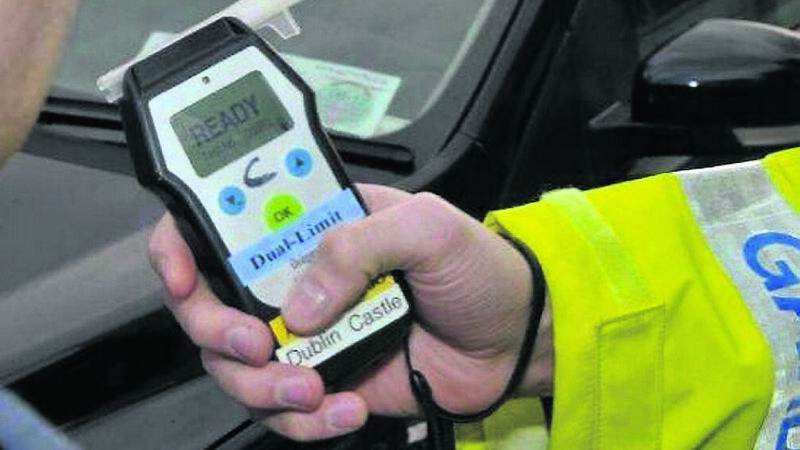Drinks industry is key to cutting car death toll

37% of road fatalities have a positive toxicology for alcohol.
FIGURES from the European Commission last month, documenting changes in road deaths from 2019 to 2023, show that Ireland is at the very bottom of the list.
Where many countries show a reduction in death rates of 20-35%, Ireland’s rate rocketed upwards, increasing 31% over the four years.
These figures do not include the further rise in fatalities (38%) since January 1 compared to the same period a year ago, with 58 people losing their lives in the first three months of 2024.
One of the Taoiseach’s first tasks on assuming office must be an urgent meeting with the Road Safety Authority (RSA).
A key priority in any discussions must be the toxic culture of alcohol in Ireland and the continued casual relationship between hazardous drinking, consumption of alcohol and driving on Irish roads.
Over the Easter weekend, an ‘alarmingly high’ number of people (177) were arrested under suspicion of driving while the influence of drugs or alcohol, according to figures from An Garda Síochána’s Roads Policing Unit.
In Ireland, 37% of road fatalities have a positive toxicology for alcohol, with 72% taking place on rural roads. Added to this, recent research from the RSA indicate one in ten drivers admit to drink driving in the last year while, tragically, road deaths continue to rise.
Ireland has shown itself a global leader in its coherent cross-government approach to addressing the public health impact of tobacco, introducing legislation two decades ago that outlawed smoking in pubs for the first time, despite huge opposition from the tobacco and hospitality industry. The decision sparked ferocious debate in what was the first real discussion on public health in Ireland. But it succeeded, saving countless lives across the globe as over 70 countries followed suit.
The same concerted response cannot be said of Ireland’s response to alcohol, despite an ongoing troubled relationship with it.
The evidence is incontrovertible, with over 1,500 alcohol attributable deaths per year. 1,500 hospital beds a day are occupied by people with alcohol-related problems - costing at least 11% of the healthcare budget. One in seven of the population have an alcohol use disorder, of which 90,000 have a severe problem.
Alcohol has a significant impact on workplace and productivity. The OECD estimates alcohol use will cause Ireland’s GDP to be 1.9% lower between now and 2050 if no action is taken.
The prevalence of alcohol use during pregnancy here is a staggering 60% or more - the highest in the world for which data is available. This is reflected in the prevalence of Foetal Alcohol Spectrum Disorder (FASD) in Ireland, at 7.7 cases per 1,000 individuals. The rate in the WHO European region is 19.8/1,000.
With this incontestable evidence of alcohol harm caused in Irish society, including road deaths, the real question is why are we not paying attention?
All this remains largely invisible to citizens - unnamed and unexamined as the alcohol industry ploughs inexorably on, leaving a trail of damage and destroyed lives. We appear to have a limitless capacity to sit back and watch as political life is seized by lobbyists and an industry intent on maximising profit.
What is incomprehensible is the incoherence of Government policy as road deaths rise and streets are overtaken, weekend after weekend, by teenagers and young adults openly intoxicated and a danger to themselves and others.
Since 2018, alcohol consumption has been affected by powerful legislation impacting on price, marketing and availability, following the introduction of the Public Health Alcohol Act (PHAA). Ireland showed itself to be a global leader last year with the introduction of mandatory labelling requirements for all alcohol products sold here, despite a predictable backlash from the drinks industry to prevent it.
Now the Department of Justice is proposing to introduce legislation that will scupper recent gains from these measures. The proposed legislation to reform late licensing laws is due to be in place in the coming months to allow pubs and clubs to stay open later this summer.
Added to that, the vociferous marketing of zero alcohol drinks continues - products that make up just 1.5% of the Irish drinks market. The Six Nations tournament, sponsored by Guinness, is perhaps the most blatant with the Guinness emblem and characteristic Guinness script plastered right across the centre of the pitch as supporters feast on this emblem from the stands, on TVs or in pubs.
What are we supposed to think? That this advertising is going to cause viewers across the country wound up in the excitement of a major national sporting event, to lick their lips and reach for a Guinness 0.0?
Alcohol Action Ireland (AAI) state that this type of marketing is a direct flouting of the law and warrants a legal challenge, according to its CEO, Dr Sheila Gilheany. “How can a brand use its logo and trademark and yet claim its product is not being advertised?”
Strong and coherent cross-government policy over decades in terms of tobacco use has led to significant reductions in cigarette smoking over decades. But the real impact has been the significant cultural change that followed an unapologetic and highly targeted government approach to the issue.
Equally, alcohol harm could be comprehensively and coherently addressed with the establishment of a statutory office for Alcohol Harm Reduction. This would allow for cross- government co-ordination of all aspects of alcohol regulation including licensing, marketing and promotion, strategic development of treatment services, education and prevention programmes and the commissioning of relevant data plus the monitoring and evaluation of policy.
This office would support the full implementation of the PHAA, the protection of children, and the provision of timely alcohol treatment recovery services, while ensuring that the needs of citizens are comprehensively protected and balanced against the needs of the alcohol industry and the economy.
Proactive first steps Simon Harris could take to address road deaths and alcohol harm collectively are to scrap the farcical Sale of Alcohol bill, to legally challenge the marketing of zero-alcohol products, and to establish a much- needed office for Alcohol Harm reduction.
This type of robust response to the role of alcohol harm in Irish society would have the potential to impact hugely on the ongoing destructive alcohol culture that is at the heart of so much grief on Irish roads and in every community across Ireland.







 App?
App?




